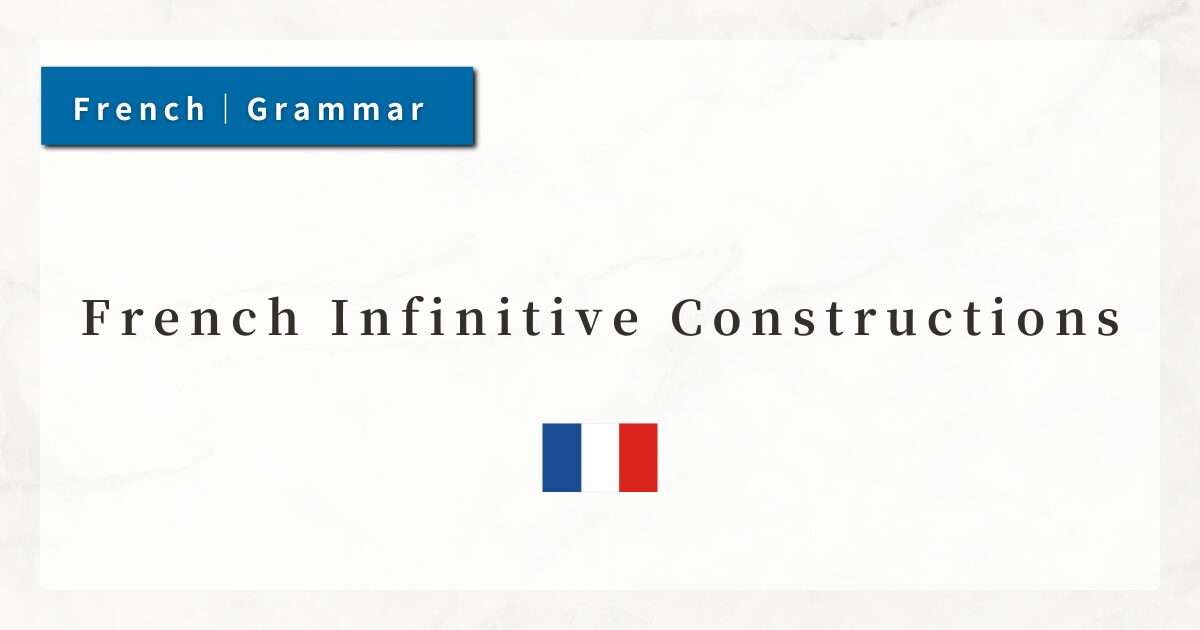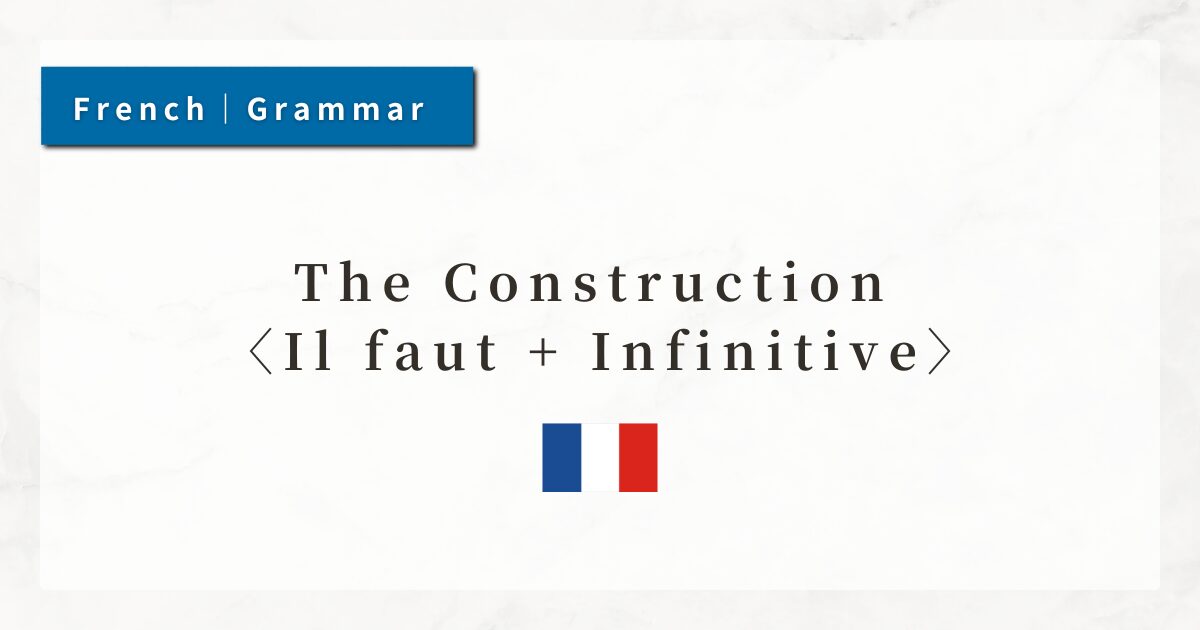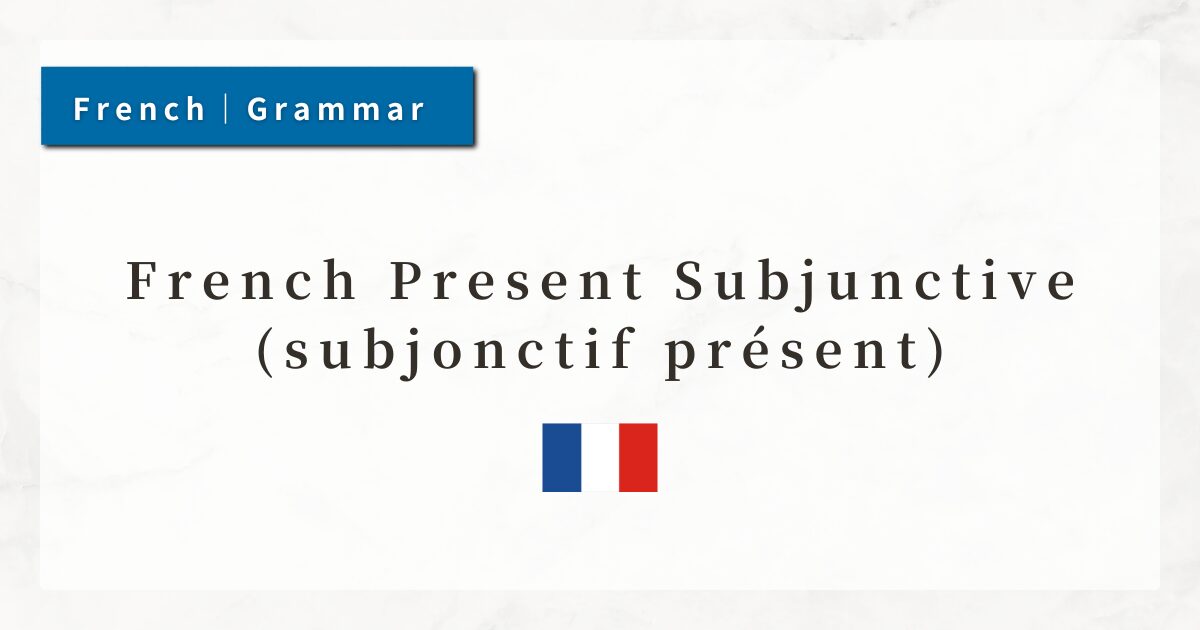#44 “Preposition + Infinitive” Constructions | Combination Rules Explained

In French, expressions such as “in order to,” “before doing,” or “without doing” are often formed using the structure preposition + infinitive.
This construction is important because it allows you to express purpose, time, condition, or contrast in a concise way, while keeping the meaning clear and natural.
In this lesson, I will introduce some of the most common prepositions used with infinitives—such as pour, sans, and avant de—and explain their usage, meaning, and key points to keep in mind.
1. The Basics of “Preposition + Infinitive”
In French, when indicating the purpose, condition, or order of an action, it is common to place an infinitive (the base form of the verb) after a preposition.
- Je fais des efforts pour réussir.
(I make an effort in order to succeed.)
→ pour + réussir (expressing purpose)
The key point is that the verb following the preposition must remain in its infinitive form.
Unlike conjunctions (such as que), this structure does not introduce a new subject, making the sentence simpler and smoother.
2. pour + infinitive: “in order to”
The preposition “pour” is one of the most common, and it expresses purpose or intention.
It answers the question “for what purpose?” and is similar to English “to + verb.”
- Je travaille pour vivre.
(I work in order to live.) - Elle étudie pour passer l’examen.
(She studies in order to pass the exam.) - Il court pour être en bonne santé.
(He runs in order to stay healthy.)
This construction is shorter and more natural in everyday speech compared to using a conjunction.
3. sans + infinitive: “without doing”
The structure “sans + infinitive” means “without doing” and indicates an action that was not performed.
- Il est parti sans dire au revoir.
(He left without saying goodbye.) - Elle a répondu sans réfléchir.
(She answered without thinking.) - Nous avons commencé sans attendre les autres.
(We started without waiting for the others.)
The nuance is not simply “did not do,” but rather that the action was omitted or skipped.
4. avant de + infinitive: “before doing”
“avant de” introduces an action that takes place before another, and always requires “de” before the infinitive.
- Avant de manger, je me lave les mains.
(Before eating, I wash my hands.) - Il réfléchit avant de parler.
(He thinks before speaking.) - Avant de sortir, elle a pris un parapluie.
(Before going out, she took an umbrella.)
In everyday speech, “avant de + infinitive” is more natural than “avant que + subjunctive” when the subject does not change.
5. afin de + infinitive: “in order to” (formal)
“afin de” also expresses purpose, similar to “pour,” but is more formal and polite. It is often used in written French, academic contexts, or official documents.
- Le gouvernement a lancé une campagne afin de réduire la consommation d’énergie.
(The government launched a campaign in order to reduce energy consumption.) - Nous avons pris des mesures afin de prévenir les accidents.
(We took measures in order to prevent accidents.)
6. au lieu de + infinitive: “instead of doing”
“au lieu de + infinitive” means “instead of doing.”
It highlights a choice of action different from the expected or appropriate one, sometimes with a critical nuance.
- Tu regardes ton téléphone au lieu de travailler.
(You are looking at your phone instead of working.) - Il dort au lieu d’étudier.
(He sleeps instead of studying.)
7. Summary
- Preposition + infinitive constructions express purpose, negation, time, and contrast in a concise way.
- The forms pour, sans, and avant de are particularly common in both spoken and written French.
- Some prepositions, such as avant de, afin de, and au lieu de, require the structure de + infinitive.




